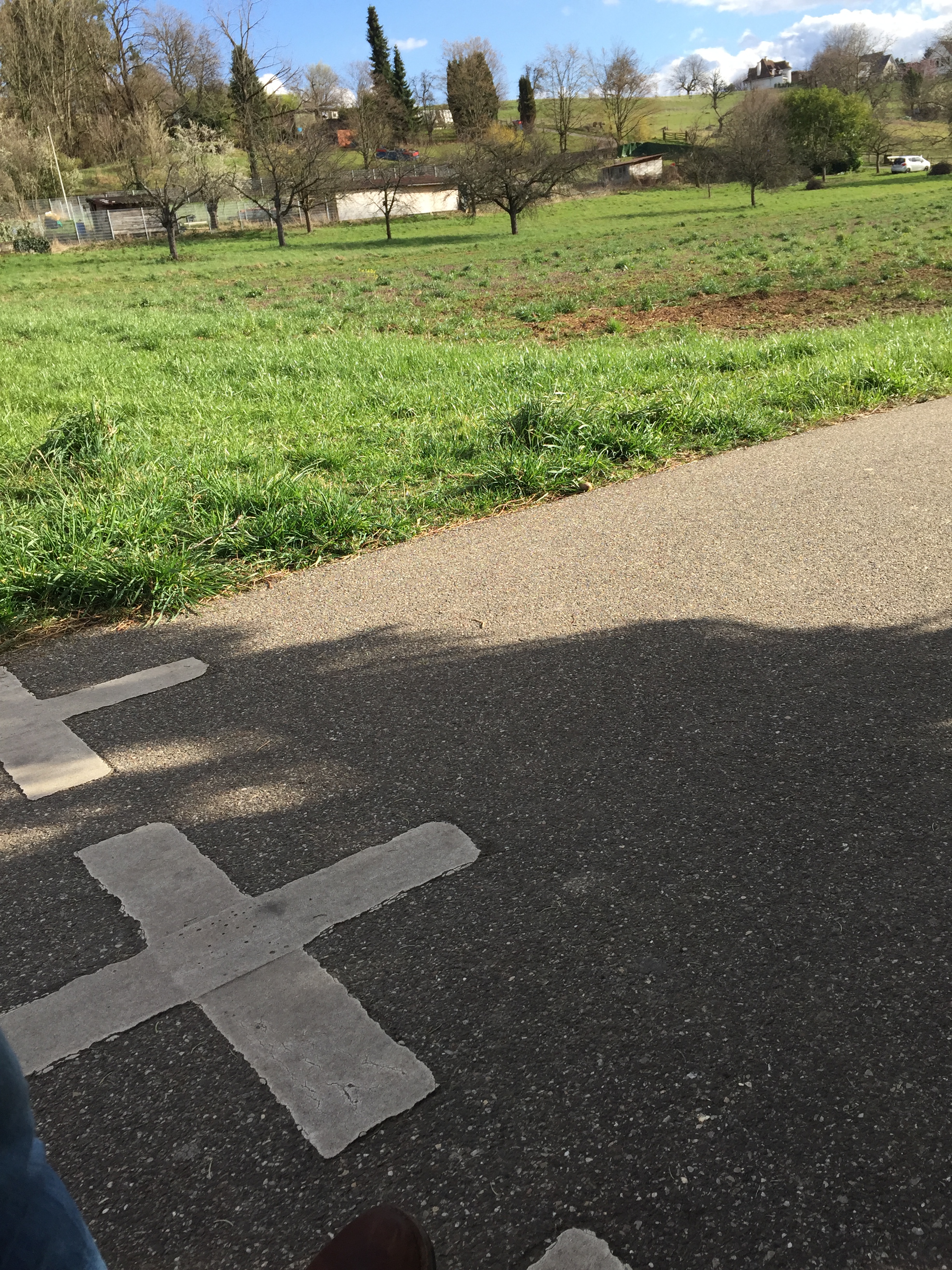
Scroll for English
Eugène Delacroix’ Griechenland auf den Ruinen – sur les ruines – von Missolonghi passt zur heutigen Mariä Verkündigung. Wie Maria vor Erzengel Gabriel trotz asexueller Schwangerschaft immer schön abgebildet wird, ließ Delacroix Hellas trotz Ratlosigkeitsgeste in der Gestalt seiner atemberaubenden Laura um die Gefallenen von Missolonghi trauern. Die Gefallenen selber sind unter Lauras bzw. Griechenlands Füßen durch Byrons Hand vertreten, der einst gedichteschreibenden und nun in Westgriechenland erstarrten.
Das Fest von Mariä Verkündigung ist in Griechenland gleichzeitig Revolutionstag. Eine Revolution in Anlehnung an der Französischen, die allerdings unter der Führung des Klerus eingeleitet wird, klingt so, als würde der Sturm auf die Bastille vom Pariser Bischof samt Gläubigen begangen, während Danton zu Hause bleibt. Das ist wohl Griechenland und es gab tatsächlich Oxymora im Griechenland der Jahre 1821-1827.
An der Place de la croix steige ich immer ein und aus. So auch heute. Das ist meine Haltestelle. Eben “de la croix”, Kreuzplatz, und nicht etwa Delacroix. Bekannt ist der Platz unter anderem für einen türkischen Supermarkt, wo es frische Puffbohnen und Löwenzahn und Portulak und Artischocken und Meerbarben zu kaufen gibt. Trotz der Ruinen gehen das Leben und das Zusammenleben weiter.



Enough with scrolling
Eugène Delacroix’s Greece on the ruins – sur les ruines – of Missolonghi is the right theme for today’s Annunciation of Mary. Mary is always depicted as a pretty girl in front of Gabriel although her pregnancy is categorically supposed to be nonsexual according to the faith. Likewise, Delacroix does make la Grèce look desperate after death and destruction, Byron’s hand under her feet, not poems writing anymore but rather buried in the stones of Western Greece. To Delacroix, obviously, mourning is no reason to make la Grèce unsexy. As a matter of fact, Laura, Delacroix’s model, was breathtaking if you ask me…
The feast of the Annunciation is Revolution Day in Greece. A revolution supposed to imitate the French Revolution, nevertheless, and led by a bishop on this iconic day, resembles a situation in which Danton would stay home and the bishop of Paris would be in charge for the storming of the Bastille. That’s Greece, I suppose, and there were many historical oxymorons in Greece in the years from 1821 to 1827.
Place de la croix is my bus stop. Today wasn’t an exception. “De la croix”, Square of the Cross, not Eugène Delacroix. The square is known for a Turkish supermarket where I always find fresh fulya and dandelion and artichokes and purslane and red mullet. In spite of the ruins, life and life together go on.






























You must be logged in to post a comment.